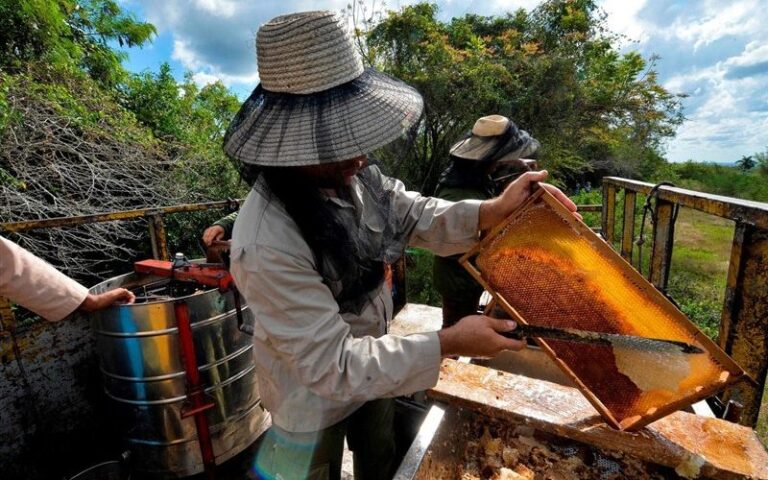Exports are far from pleasing in Matanzas. This is attested by the report presented at the Provincial Secretariat of the Cuban Workers Union (CTC) in this western territory.
The statistics say so. Here the income plan is being exceeded by more than 50 percent, a fact that is happy, but not satisfying.
Although the year is already in June, the statistics used are from the end of the first quarter, figures eloquently enough to understand that the behavior of currency values cannot be seen only with eyes of triumph, quite the contrary.
Eleven agencies and 24 entities are involved in the production of goods and services for export, including a Non-Agricultural Cooperative (CNA).
The good news of these months was offered in the export of services by the Ministries of Information Technology and Communications, Public Health and Science, Technology and the Environment, while in terms of production, honey continues to be a star. Beekeepers continue to demonstrate their high commitment to this priority for the Cuban economy.
Regarding the heading of services, one more than the 22 expected was marketed, a more favorable balance than in the case of goods, where four less than the 26 agreed were not specified.
The Raw Materials Company, of the Ministry of Industries, did not meet its contractual commitments in the assortments of electronic and steel scrap, and precious metals, just as Agriculture with tobacco, charcoal and chili peppers, rums and HG tench, in a period when there was no export plan for raw sugar, the line that has historically generated so much income.
In the stage analyzed, what happened to the GARDIS Group, of the People’s Power, which did not present its strategy for exports, is striking, and this excludes it from the portfolio of opportunities.
«Non-compliances create mistrust,» said Rogelio Leyva Castellanos, head of the Economic Affairs Sphere.
«It is up to our union organization to delve into aspects such as the fact that the planned productions did not find clients to be marketed, the non-materialization of contracts for the destination of the manufactured goods or the non-compliance with commercial demands.»
José Joaquín Pérez Ortiz, specialist in Foreign Trade of the Government in Matanzas, described the export as a complex act. «It is not an easy road. Nobody achieves it from one day to the next”, he admitted.
“You have to prepare to achieve it, train. That is why we speak of a process, of a concept. It needs certifying bodies. It depends on regulatory authorities, on approvals of standards”.
Even so, he said, the important thing is to try it in establishments, centers, companies, wherever there is potential for it.
«It is the possibility of the entry of fresh currency, both for the capitalization of the companies, as well as for the country and, above all, so that the workers also get better paid.»
According to Leyva Castellanos, for these same reasons, the trade union movement must keep the matter in daily analysis, and must take it to the board of directors, insert itself into the territorial commissions of Economy and, in particular, discuss it in depth in the affiliate assemblies. and workers. «Matanzas can export, it has great possibilities to achieve it.»
For this reason, he argued, we must contribute even more to eliminate the main weaknesses that limit the increase in the placement of products in foreign markets.
«It is necessary to define correct export strategies, identify new products, markets, introduce science and innovation to achieve quality lines and use productive chains as a tool that contributes to increasing results.» (ALH)
Translated by Casterman Medina de Leon
